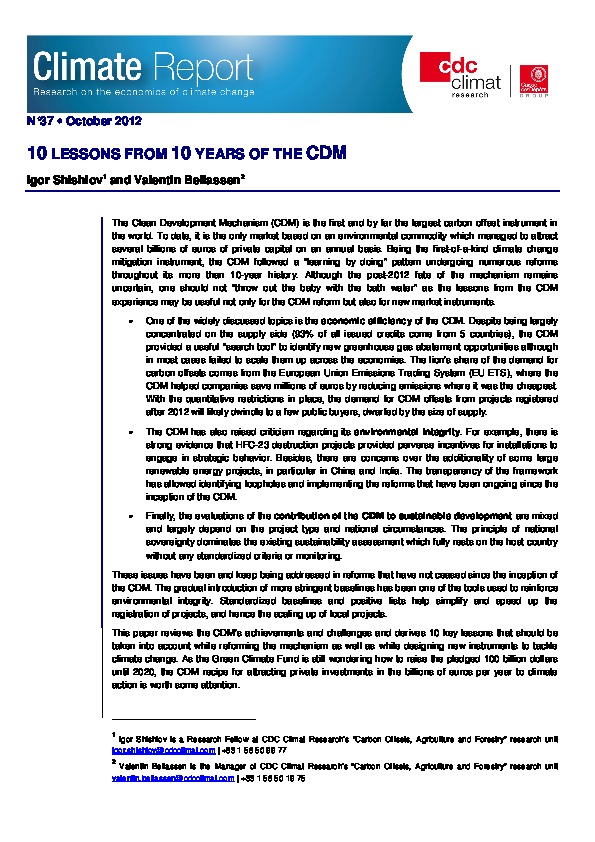10 lessons from 10 years of the CDM
By Igor SHISHLOV et Valentin BELLASSEN
The Clean Development Mechanism (CDM) is the first and by far the largest carbon offset instrument in the world. To date, it is the only market based on an environmental commodity which managed to attract several billions of euros of private capital on an annual basis. Being the first-of-a-kind climate change mitigation instrument, the CDM followed a ―learning by doing‖ pattern undergoing numerous reforms throughout its more than 10-year history. Although the post-2012 fate of the mechanism remains uncertain, one should not ―throw out the baby with the bath water‖ as the lessons from the CDM experience may be useful not only for the CDM reform but also for new market instruments.
- One of the widely discussed topics is the economic efficiency of the CDM. Despite being largely concentrated on the supply side (93% of all issued credits come from 5 countries), the CDM provided a useful ―search tool‖ to identify new greenhouse gas abatement opportunities although in most cases failed to scale them up across the economies. The lion’s share of the demand for carbon offsets comes from the European Union Emissions Trading System (EU ETS), where the CDM helped companies save millions of euros by reducing emissions where it was the cheapest. With the quantitative restrictions in place, the demand for CDM offsets from projects registered after 2012 will likely dwindle to a few public buyers, dwarfed by the size of supply.
- The CDM has also raised criticism regarding its environmental integrity. For example, there is strong evidence that HFC-23 destruction projects provided perverse incentives for installations to engage in strategic behavior. Besides, there are concerns over the additionality of some large renewable energy projects, in particular in China and India. The transparency of the framework has allowed identifying loopholes and implementing the reforms that have been ongoing since the inception of the CDM.
- Finally, the evaluations of the contribution of the CDM to sustainable development are mixed and largely depend on the project type and national circumstances. The principle of national sovereignty dominates the existing sustainability
